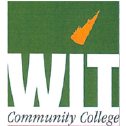What do they do?
Repair percussion, stringed, reed, or wind instruments. May specialize in one area, such as piano tuning.
Also known as:
Band Instrument Repair Technician, Banjo Repair Person, Brass Instrument Repair Technician, Fretted String Instrument Repairer, Guitar Builder, Guitar Repairer, Instrument Repair Technician, Luthier, Mandolin Repair Person, Piano Technician, Piano Tuner, Stringed Instrument Repairer
-
-8.3%
Change
Ranks #35 in job growth rate10Job Openings
Ranks #29 in net job growth
Looking for colleges that offer a specific major? Use the College Match Tool to find your best-matched schools and discover your estimated Net Price!
- Some college, no degree (26%)
- High school diploma equivalent (24%)
- Associate's degree (23%)
- Bachelor's degree (19%)
- Master's degree (4%)
- Less than high school diploma (3%)
- Doctorate or Professional Degree (1%)
People in this career often have these skills:
- Repairing - Repairing machines or systems using the needed tools.
- Troubleshooting - Determining causes of operating errors and deciding what to do about it.
- Quality Control Analysis - Conducting tests and inspections of products, services, or processes to evaluate quality or performance.
- Critical Thinking - Using logic and reasoning to identify the strengths and weaknesses of alternative solutions, conclusions, or approaches to problems.
- Judgment and Decision Making - Considering the relative costs and benefits of potential actions to choose the most appropriate one.
People in this career often know a lot about:
- Customer and Personal Service - Knowledge of principles and processes for providing customer and personal services. This includes customer needs assessment, meeting quality standards for services, and evaluation of customer satisfaction.
- Mechanical - Knowledge of machines and tools, including their designs, uses, repair, and maintenance.
- Fine Arts - Knowledge of the theory and techniques required to compose, produce, and perform works of music, dance, visual arts, drama, and sculpture.
- English Language - Knowledge of the structure and content of the English language including the meaning and spelling of words, rules of composition, and grammar.
People in this career often have talent in:
- Hearing Sensitivity - The ability to detect or tell the differences between sounds that vary in pitch and loudness.
- Arm-Hand Steadiness - The ability to keep your hand and arm steady while moving your arm or while holding your arm and hand in one position.
- Manual Dexterity - The ability to quickly move your hand, your hand together with your arm, or your two hands to grasp, manipulate, or assemble objects.
- Finger Dexterity - The ability to make precisely coordinated movements of the fingers of one or both hands to grasp, manipulate, or assemble very small objects.
- Control Precision - The ability to quickly and repeatedly adjust the controls of a machine or a vehicle to exact positions.
- Near Vision - The ability to see details at close range (within a few feet of the observer).
- Auditory Attention - The ability to focus on a single source of sound in the presence of other distracting sounds.
- Deductive Reasoning - The ability to apply general rules to specific problems to produce answers that make sense.
- Inductive Reasoning - The ability to combine pieces of information to form general rules or conclusions (includes finding a relationship among seemingly unrelated events).
- Problem Sensitivity - The ability to tell when something is wrong or is likely to go wrong. It does not involve solving the problem, only recognizing that there is a problem.
- Visualization - The ability to imagine how something will look after it is moved around or when its parts are moved or rearranged.
People in this career often do these activities:
- Test mechanical equipment to ensure proper functioning.
- Align equipment or machinery.
- Adjust tuning or functioning of musical instruments.
- Adjust equipment to ensure optimal performance.
- Reassemble equipment after repair.
- Lubricate equipment to allow proper functioning.
- Disassemble equipment for maintenance or repair.
- Replace worn, damaged, or defective mechanical parts.
- Repair worn, damaged, or defective mechanical parts.
- Inspect mechanical equipment to locate damage, defects, or wear.
- Solder parts or connections between parts.
- Remove dents from equipment, materials, tools or structures.
- Test electrical circuits or components for proper functioning.
- Smooth surfaces of objects or equipment.
- Prepare compounds or solutions to be used for repairs.
- Refinish wood or metal surfaces.
- Fabricate parts or components.
- Clean equipment, parts, or tools to repair or maintain them in good working order.
- Assemble mechanical components or machine parts.
- Travel to work sites to perform installation, repair or maintenance work.
- Remove parts or components from equipment.
- Operate welding equipment.
- Cut materials according to specifications or needs.
- Paint surfaces or equipment.
This page includes data from:

 Occupation statistics: USDOL U.S. Bureau of Labor Statistics Occupational Employment Statistics
Occupation statistics: USDOL U.S. Bureau of Labor Statistics Occupational Employment Statistics
 Videos: CareerOneStop, USDOL/ETA and the Minnesota Department of Employment & Economic Development
Videos: CareerOneStop, USDOL/ETA and the Minnesota Department of Employment & Economic Development













